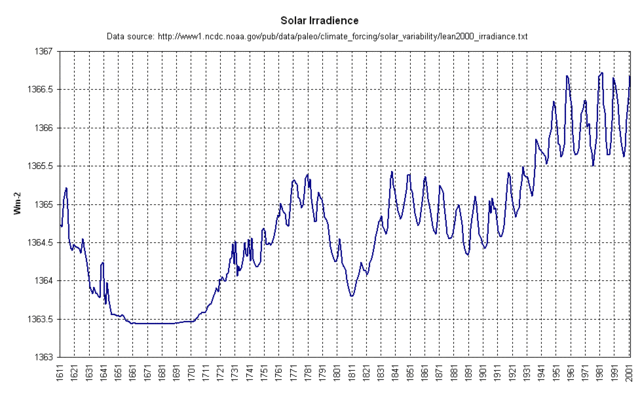Check the Thermostat!
While we all argue about man's impact on the climate (my most recent take here), why isn't anyone checking the thermostat?
The New
Scientist report, along with other scientific assessments warning of
global cooling, also come as a blow to the campaign -- led by David
Suzuki and one of the directors of his foundation -- to portray all who
raise doubts about climate change theory -- so-called skeptics -- as
pawns of corporate PR thugs manipulating opinion. If the Suzuki claim
is true, then the tentacles of Exxon-Mobil reach deeper into science
than anyone has so far imagined.Dramatic global temperature fluctuations, as New Scientist
reports, are the norm. A Little Ice Age struck Europe in the 17th
century. New Yorkers once walked from Manhattan to Staten Island across
a frozen harbour. About 200 years earlier, New Scientist reminds us, a
sharp downturn in temperatures turned fertile Greenland into Arctic
wasteland.These and other temperature swings corresponded with changing
solar activity. "It's a boom-bust system, and I expect a crash soon,"
says Nigel Weiss, a solar physicist at the University of Cambridge.
Scientists cannot say precisely how big the coming cooling will be, but
it could at minimum be enough to offset the current theoretical impact
of man-made global warming. Sam Solanki, of the Max Planck Institute
for Solar System Research in Germany, says declining solar activity
could drop global temperatures by 0.2 degrees Celsius. "It might not
sound like much," says New Scientist writer Stuart Clark, "but this
temperature reversal would be as big as the most optimistic estimate of
the results of restricting greenhouse-gas emissions until 2050 in line
with the Kyoto protocol."
It turns out that while we may be encountering some of the highest temperatures in a couple of centuries, the sun's output is also at its highest point in centuries:

It's the Carrollean Queen of Hearts mentality: first the verdict, then the trial. Why let facts get in the way of a crusade, or an old-fashioned auto-da-fe.
Of course, it's science that going to be burned at the stake, but that's a small price to be paid for "saving the world" (in the 2007 revision of the Newspeak dictionary) - or rather, saving the world from Western democracy and free enterprise.
How was that solar data back to 1611 collected? I can think of several low-tech ways of measuring the heat from the sun, but every possible method requires a thermometer, and I don't think those existed in 1611. The first temperature scale & method of calibrating thermometers so you could compare the readings from different thermometers was published by Fahrenheit in 1724.
The climate models all take solar irradiance into account and have since day one. Come on, people; that's an obvious basic variable.
It's like somebody going into a meeting of biologists who specialize in evolution and triumphantly declaring that our crack team of creationists has discovered that there are gaps in the fossil record, so YOU FOOLS! You're wrong!
Professor Weiss, who you quote in support of this argument, has been careful to maintain that, although solar activity may have an effect on climate change, this is MINIMAL and insignificant compared to the global warming that we are already experiencing - and very small compared to what will happen if we continue to burn fossil fuel at the present rate.
In his own words:
"It has been established from satellite measurements that during the 11-year solar cuycle the solar irradiance drops by about 0.1% from sunspot maximum to sunspot minimum, corresponding to a drop of around 0.1 degrees Celsius in global temperature. There might be a similar fall in temperature in a Grand Minimum. Such modulation has occurred several times in the last thousand years and may have been associated with climatic variation -- but we know that global temperature has only varied by about 0.2 degrees Celsius during that period (though fluctuations in local climate have been more severe). That is a small effect compared to the changes that we have experienced in the last half-century, and is much smaller than the changes predicted for the future.
It would, of course, be very interesting to experience a Grand Minimum, and it would be satisfying to be able to calibrate the influence of solar variability on climate. But I have always been careful to maintain that this does not affect the issue of global warming, which is caused by greenhouse gases, and that the concentration of CO2 is rising owing to burning fossil fuel."
For further information, please see his webpage at http://www.damtp.cam.ac.uk/user/now/.